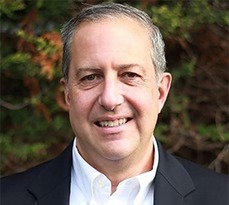An upcoming Cambridge Disinformation Summit and ongoing webinar series looks at the scourge of strategic disinformation, says Professor Alan Jagolinzer of Cambridge Judge Business School.

Accountants have been grappling with disinformation about the financial health of publicly traded corporations for decades – remember Enron, Worldcom, Wirecard, and Carillion? Drawing on some of these lessons, Professor of Financial Accounting Alan Jagolinzer, who co-directs the Cambridge Centre for Financial Reporting & Accountability (CFRA) at Cambridge Judge Business School, has organised a Cambridge Disinformation Summit to discuss how disinformation in broader contexts “acts as an accelerant for nearly all global societal problems.” The Summit is scheduled for July 2023, and an ongoing series of webinars is exploring various aspects of the topic leading up to the Summit.
Professor Jagolinzer reflects in this blogpost on the problem of disinformation, the upcoming Summit, and some highlights of the webinars to date.
I sat home through the pandemic, internalising the damage that disinformation was doing to personal relationships, democratic institutions, and humanity. My nephew died from politically exploitive disinformation about vaccine efficacy and safety. Relationships with family members and old friends were irreparably severed due to social media-fed disinformation siloes. I watched a disinformation-fueled insurrection in my native country, the US, and we are now witnessing incomprehensible carnage from a disinformation-fed war on our continent.
This reflection led me to wonder:
Why do we have so much infrastructure in accounting to mitigate disinformation risk, including reporting standards, audit, governance boards, and civil and criminal enforcement, yet we lack similar infrastructure in other outlets like radio, television, and social media, where the potential societal damage is much greater?
I also wondered what is the efficacy of fact-checking organisations like Africa Check, Snopes and Bellingcat, which seem somewhat analogous to our accounting audit system? And why does disinformation still flourish when fact-checking is available? This led me to wonder why some people refuse to seek or internalise alternative data, such as information from fact-checking organisations, when the data might help them better understand important topics like whether there is evidence of election fraud or the efficacy and safety of vaccines.
This is why I reached out to scholars and practice partners from journalism, psychology, political science, management, and other information science fields to address these questions and develop interdisciplinary collaboration on ways to educate about the dangers of disinformation and to mitigate disinformation efficacy.
Together we have organised the Cambridge Disinformation Summit, which is planned for in-person meetings on 27-28 July 2023, and a lead-in monthly webinar series has already shed important light on some of these questions.
Wilful ignorance, delusion-like beliefs, and conspiracy theories
The first webinar was co-moderated by Mark de Rond, Professor of Organisational Ethnography at Cambridge Judge, and Anna Mason, a Cambridge MBA student. They hosted a discussion with Dr Joseph Pierre, Health Sciences Clinical Professor in UCLA’s Department of Psychiatry and Biobehavioral Sciences, about “Wilful ignorance, delusion-like beliefs, and conspiracy theories.” In his talk, Dr Pierre outlined how many people who internalise beliefs based on disinformation do so, in part, to fulfil a need for a sense of belonging to a special community.
The use and efficacy of propaganda
The second webinar, hosted in February, featured Stephen Jolly, Professeur Agrégé de Géopolitique at Rennes School of Business, and a former senior British Defence Department official who has written extensively on military propaganda, who discussed “The use and efficacy of propaganda.”
“Any professional propagandist knows that the winning formula is a 99% truth and 1% falsehood rather than trying to promote one Big Lie,” Stephen told the webinar. “Propaganda is about persuading someone to do something or to think something in order to do something. Modern technology has accelerated the spread of propaganda but has not altered its fundamental nature. Disinformation is a species of propaganda.
“Counter-disinformation strategies require an integrated approach that addresses media literacy, detection and analysis/assessment, real-time response, ongoing counter-narratives and evaluation. The best defence against disinformation comes from sustained counter-narrative over time. It is less difficult to refute disinformation events if you have laid the groundwork.”
The process and impact of media fact-checking
The March webinar focused on “The Process and Impact of Media Fact-checking” with Kate Wilkinson, Deputy Chief Editor at Africa Check, a website dedicated to fact-checking in Africa. The organisation has people based in South Africa, Kenya and Nigeria for English-language fact-checking, and in Senegal for French-language fact-checking.
She told the audience that her organisation’s work is fairly simple when there is clear data to contest a factual assertion, such as government housing data, but there is often an “information void” used intentionally or unintentionally by people to advance certain interests. “Without data you can write page after page on why something is incorrect and some people still won’t believe it,” she said.
She said that job scams are a huge disinformation problem in a country like South Africa with large unemployment, particularly among young people, and that WhatsApp has become a troubling source of disinformation because there is no way to measure it given that the platform is encrypted.
Business risk of disinformation
The most recent webinar, on 28 April, focused on “Business risk of disinformation”, featuring Matt Gorham, Senior Fellow, Cyber & Privacy Innovation Institute, at professional services firm PwC. He discussed the nature of disinformation threats to private companies and their executives, and how company management and boards are behind the curve on developing robust systems to preserve reputation in the face of targeted disinformation campaigns.
He mentioned a few scenarios he has encountered where there were targeted disinformation campaigns against private companies. They included placing false information related to a pending merger to exploit a falling stock price, and an attack by a group that did not support a political stance communicated by the company or one of its managers. Another related to activists who publicly shared inaccurate business models to draw negative attention to a company’s operations.
To help inoculate firms from disinformation damage, Matt said that “the key thing a company can do now, before an incident were to occur, is to know and live your brand or corporate values and ensure (that) people know who you are and what your values are.” He said that corporate boards and managers should be aware that they are more susceptible to disinformation as society becomes more polarised, and predicts greater susceptibility to risks from hostile nation states – so firms should initiate dialogue with chief risk officers and board members in planning to counter disinformation risk.
Disinformation for profit: the dark business behind disinformation
The next scheduled webinar, on 23 May 2022 at 7 pm BST, will explore “Disinformation for Profit: The Dark Business Behind Disinformation,” featuring Dr. Emma Briant, a new research affiliate with the CFRA. She will discuss her research that helps uncover disinformation actors and maps disinformation networks that profit from introducing and spreading false narratives that induce societal chaos. Dr. Briant has testified on disinformation practice with many global government bodies, and is best known for her work helping to expose Cambridge Analytica and advising the 2019 Netflix documentary The Great Hack.
We have deliberately structured the webinar series and the Summit to include people from outside of accounting, finance, and business fields. Participants include other research centres at Cambridge Judge and elsewhere, such as the Cambridge Psychometrics Centre and the University of Notre Dame Center for Accounting Research and Education, to support a broad dialogue about disinformation – because only such multidisciplinary approaches can help solve this societal malignancy.


